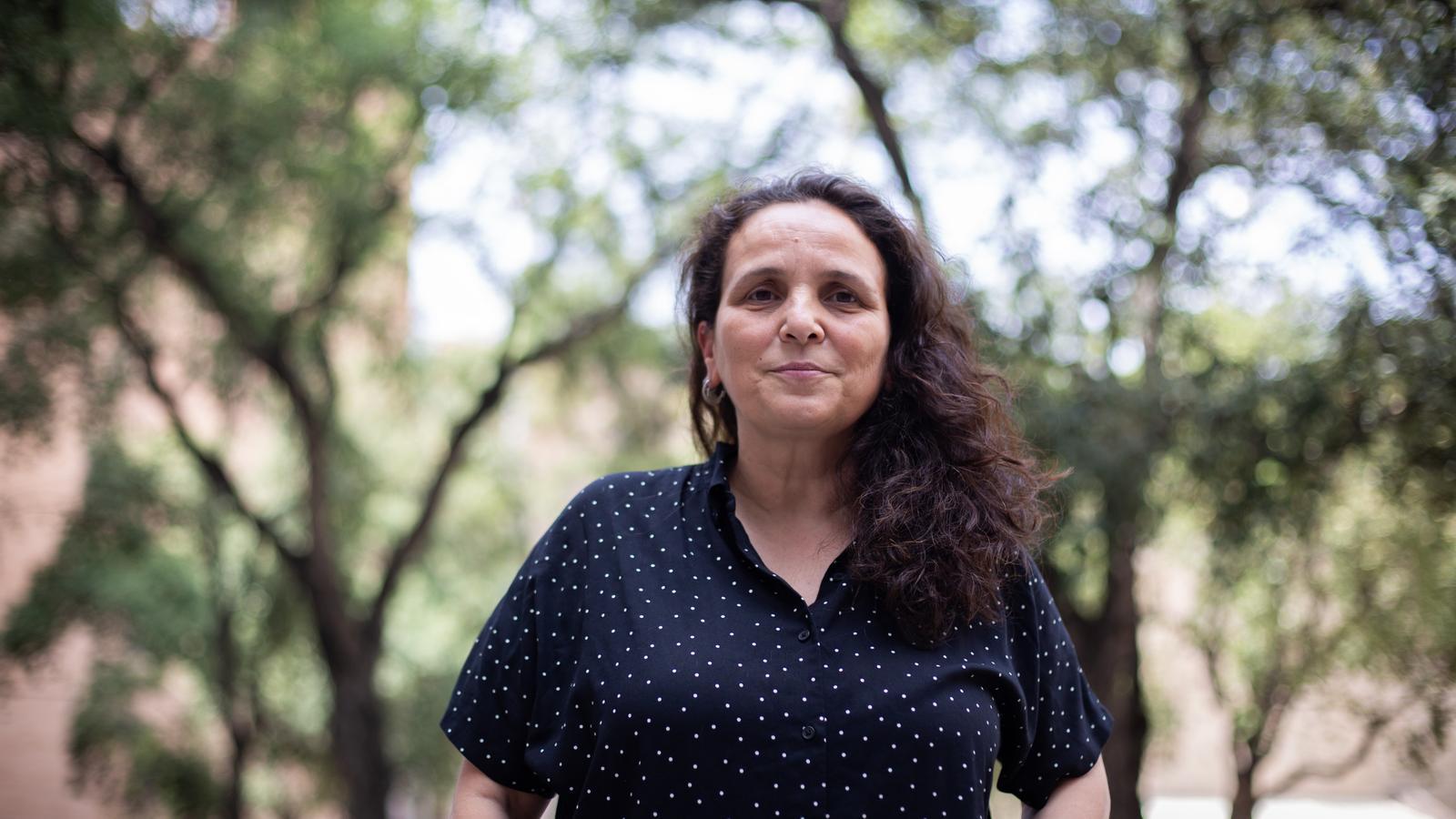"I like the dead to be part of my daily life."
Eva Pitarch reflects on mourning and lies in the novel 'The Liar'

BarcelonaLying to survive. Self-deception. Lying to keep others from interfering in her life. Lying as a rebellion to continue living the way she wants. Sara, the protagonist of The liar (Más Libros), Eva Pitarch's debut novel, lies constantly. Her husband thinks she's going to work, but he gets careless on the streets of Barcelona or locks himself in his grandmother's apartment. Sara is uncomfortable because she constantly remembers the dead, including her six-year-old daughter. On the other hand, the others insist she should leave them behind.
Pitarch had been clear about the idea she wanted to develop in the book for years: helplessness, the feeling of having nothing or no one to hold on to. "That's why my character suffers so many losses. There's no greater helplessness than losing a daughter," she says. Behind the novel is also a personal experience. "Many years ago, my six-year-old daughter fell and suffered a head injury. She was hospitalized for a while. At the same time, my father had heart surgery and was also hospitalized. My daughter pulled through, but my father didn't," she explains.
A The liar Everything happens in just one week. There's Sara's point of view, but also that of all the people around her and with whom she has emotional relationships. The daughter's isn't the only tragedy. There's the death of the mother and the dementia of the grandmother, who, against Eva's wishes, is confined to a nursing home. "I wanted to make a statement about the presence of those who are no longer here and about being able to talk about it, because they are still a part of us," she asserts. She says this at the beginning of the book, with a quote from Gianfranco Calligarich: "But it's always like this; we are what we are not because of the people we've known but because of those we've left behind." Pitarch explains that in other cultures, vigils are experienced more intensely. "Here, we bury them under a layer of silence. There are people who feel uncomfortable if you talk about the dead, or if you talk about them with sadness or from a place of loss. Over time, I like to integrate them into my daily life; I think part of caring is doing so," she says.
The right to live like a flight
Pitarch also touches on motherhood. "Daniel, Sara's husband, always knows how to do things; he has a kind of instruction book for every moment of life. And Sara tells him she doesn't want to live like that. I think we have the right to live every moment of life, including motherhood, how we want and not how we're expected to," says the author.
There's a lot of deception in the book. "Sometimes, lying is like a shield. It's a way of defending ourselves from indiscreet questions," explains Pitarch. Sara clings to objects and all the memories of her daughter, and dwells on the days leading up to her death. Not only that. She also has a very close bond with her grandmother, who lives in a nursing home against her will. "We're a very adult-centric society; everything is designed for adults," explains the author, who criticizes the fact that the needs of children and the elderly often go largely unmet. "I made everything happen in a big city because I think the desolation and helplessness are worse than in the villages," he explains.
